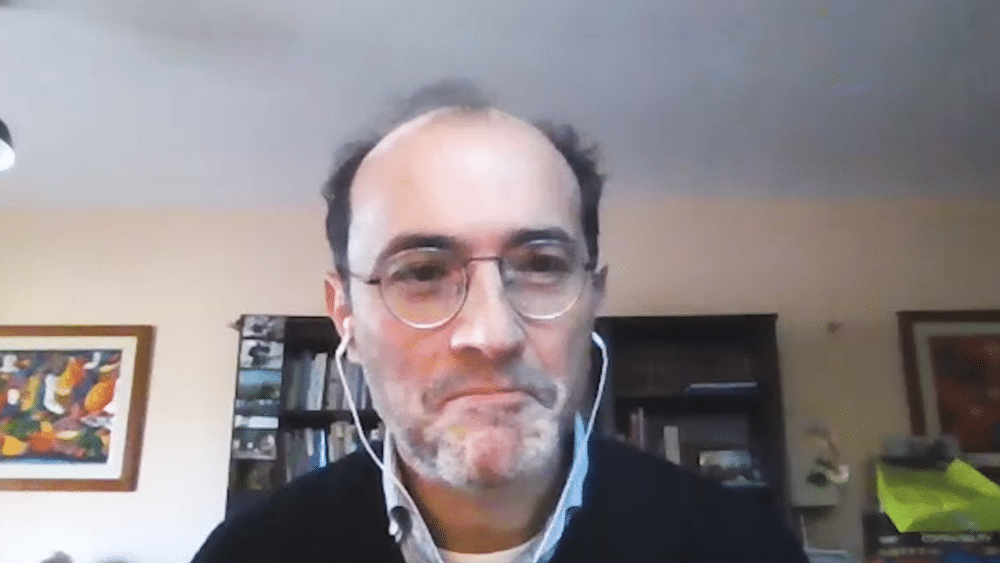Workaholics report worse well-being than others in organizations. Their mood doesn’t even improve when they engage in work and duties, the things they are dependent on – according to Italian scientists. The signs of emotional flatness observed in people struggling with work addiction are similar to those experienced by people involved in other addictions. Workaholism carries a number of health consequences, primarily for mental health, but not only. It also increases the risk of cardiovascular diseases.
The scientists included 139 full-time employees in the study. They first applied a psychological test to assess the participants’ dependence on work. Then, the researchers analyzed the workers’ mood and their perception of work load, applying the experience sampling method. This was done using an app installed on the participants’ phones, which allowed sending short surveys about every 90 minutes from 9:00 to 18:00 for three working days (Monday, Wednesday, and Friday). The results of the study were recently published in the “Journal of Occupational Health Psychology.”
“We found that people who show greater tendencies towards workaholism usually report more negative emotional reactions related to work and its accompanying activities. Intuition would suggest that workaholics usually experience positive emotional reactions, how they are focused on the one thing that plays a key role in their life, i.e., their professional activity. On the contrary, we discovered something completely different. If you demonstrate greater tendencies towards workaholism, you do not experience positive emotional reactions at work, but more negative ones compared to people who do not show such tendencies”, says Prof. Cristian Balducci from the Department of Quality of Life Studies at the University of Bologna in an interview for Newseria Innowacje.
This discovery suggests that workaholism indeed has a lot in common with other addictions. Similar to drugs or alcohol, addicted individuals do not feel relief after using these substances or during their work obligations, but rather experience negative emotional states.
Most workaholics were found to have an averagely worse mood than the other study participants. Unlike other workers, workaholics maintain a more negative mood throughout the day. Reduced mood reactivity to external stimuli is a sign of emotional flatness, which also occurs in other types of addictions.
“Another interesting discovery from the research is that women are usually more prone to workaholism tendencies compared to men. If they are workaholics, they experience or may experience more negative emotional states than men. This means that a workaholic personality or workaholism tendencies may be more harmful to women than to men,” points out Prof. Cristian Balducci.
Overwork can have negative effects on mental health, leading to burnout, but there are more risk factors, as the researcher points out – emotions usually correlate with physiological reactions. In the course of the study, it was established that people showing workaholism tendencies report higher levels of systolic and diastolic blood pressure. In Japan, the phenomenon of karoshi, or death from overwork, which occurs as a result of a heart attack or suicide, has been well documented. In the white paper of the Japanese Ministry of Health, Labor and Welfare from 2023, it is indicated that over 10% of men and more than 4% of women in this country work more than 60 hours a week. Almost 27% of people working in such a dimension have observed symptoms of depression or anxiety in themselves.
“Workaholism may be some sort of disease. It’s hard to call this state a disease in the strict sense of the word, simply because it has negative consequences. It is not officially considered a disease, at least not currently. It may be in the future,” the University of Bologna scholar warns. “A meta-analysis conducted in this area, the results of which were recently published, suggests that workaholism is a common phenomenon, affecting about 15% of the working population. So it’s something that cannot be ignored, as it affects a considerable number of workers and has serious consequences.”
A solution to workaholism, according to scientists, should be promoting the idea of work-life balance, striving for equilibrium between professional and personal life.
“We need to stop work at some point and move on to other kinds of activities, especially those that we find enjoyable and that have nothing to do with work. This way we stop working and we can recover from the energy loss that was used for professional duties. We start the next day with a higher level of involvement and don’t experience the negative consequences of workaholism because we didn’t work evenings or over the weekend. Essentially, we need to learn how to disconnect from work and spend time on activities that we enjoy and that have nothing to do with work “, recommends the expert.
However, in many places, working on days off and after work hours is not considered a negative phenomenon, but rather desirable. Physical workers can easiest disconnect from work. It’s most difficult for people in positions requiring mental effort and management. In their case, some tasks can often be done remotely, from home, and this does not encourage setting a boundary between work and private time.
“They need to make themselves aware of how important this ability is and how important it is to allocate time for other activities. This is also important from the organization’s point of view, as workaholism also negatively affects work results. If we work in the evenings and on weekends for a long time, we cannot regenerate. This means that in the long run, our efficiency will fall, because a lot of energy and effort is needed to maintain the same level of efficiency if we cannot recover and we don’t feel too well”, believes Prof. Cristian Balducci.
